Location
Our Seattle Location
Northpoint Seattle’s outpatient treatment program is located in beautiful Seattle, Washington, and we work to help the surrounding communities.
- Seattle
2111 N Northgate Way Suite 101,
Seattle, WA 98133, United States
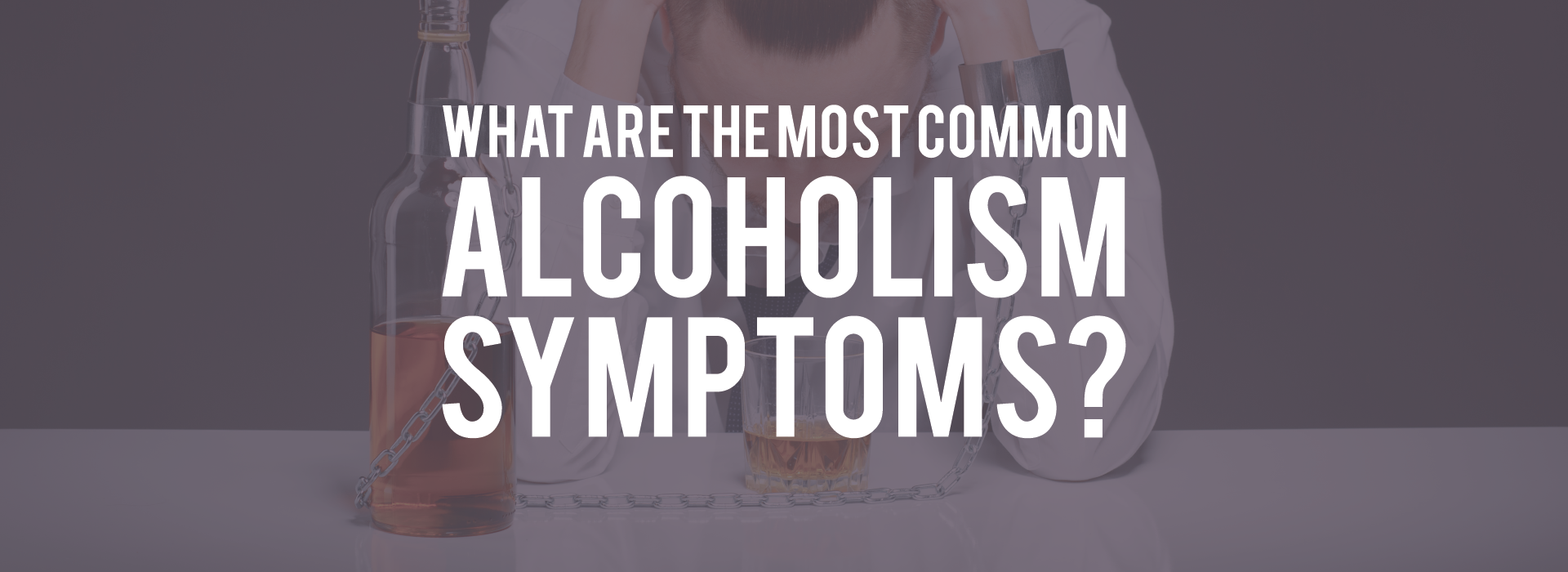
"I was living in constant fear of who I'd meet, what I might have said to them, what I might have done with them, so I'd stay in my apartment for days and drink alone. I was a recluse at 20. It was pathetic – it wasn't me. I'm a fun, polite person, and it turned me into a rude bore."
Like Radcliffe, many people fall prey to alcoholism and find that it changes their life and personality. Some people have flawed ideas about alcoholism. Many assume that alcoholics are only people who have been unsuccessful in relationships or work.
It’s important to know that this isn’t true - alcoholism takes many forms. For some people, signs of alcoholism will be more obvious than others. Some alcoholics hold steady relationships or excel at their work. Often, they are hiding other symptoms of alcoholism that are just as serious.
Are you worried that you or a loved one has alcoholism? Learn more about the symptoms of alcoholism to find out. Addiction has a genetic component. This means that if a family member has struggled with alcoholism or addiction, you are more likely to struggle with it too.
On this page, we will address the following questions about the signs and symptoms of alcoholism:
Alcoholism is one level of a condition often called Alcohol Use Disorder. When you have alcoholism, you regularly use alcohol in unhealthy ways. Unhealthy use of alcohol can include:
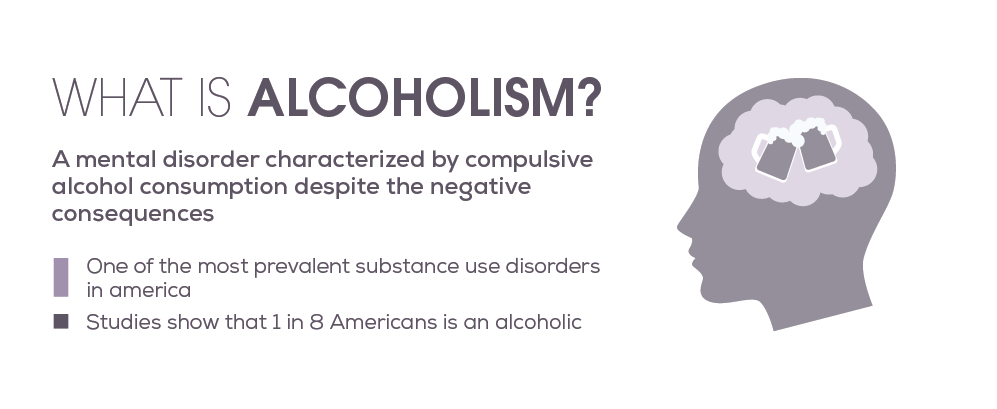
Alcohol abuse and alcohol addiction, however, are different. Alcohol abuse is simply using alcohol in unhealthy ways. This becomes alcohol addiction - or alcoholism - when the user physiologically cannot stop themself from drinking and cannot function without alcohol.
Watch this video to learn why some people are more prone to become addicted to alcohol.
There are three stages often used in the description of alcoholism or alcohol use disorder. These are:
Physical symptoms of alcoholism are those that affect the body.
Sometimes, the most obvious signs of alcoholism are physical. This is because drinking too much alcohol can actually change the way you look.
Here are ways that alcohol changes your physical appearance:
Abusing alcohol for an extended period of time can also lead to physical symptoms that are more harmful. These symptoms of alcoholism include:
As you can see, there is a range of physical symptoms of alcoholism. Some symptoms of alcoholism are purely cosmetic, while others can be painful or life-threatening if not treated.
Physiological refers not just to the body itself, but to the processes that occur within the body. These processes help the body to run normally, so it works as it should and stays alive. Alcoholism often interrupts or changes these processes, causing the body harm.
Some physiological symptoms of alcoholism include:
As you can see, these changes in the body can be very painful or harmful. They can affect your ability to work or carry out everyday tasks. What’s more, the body can get so accustomed to the physical and physiological symptoms of alcoholism that it learns not to function without them. This can make it even harder to withdrawal from alcohol or detox from alcohol.
In addition to affecting the body of a user, alcoholism affects the mind of a user. The most obvious psychological symptoms of alcoholism are those that make it clear that the user has lost control of how much they drink alcohol or how often they drink alcohol.
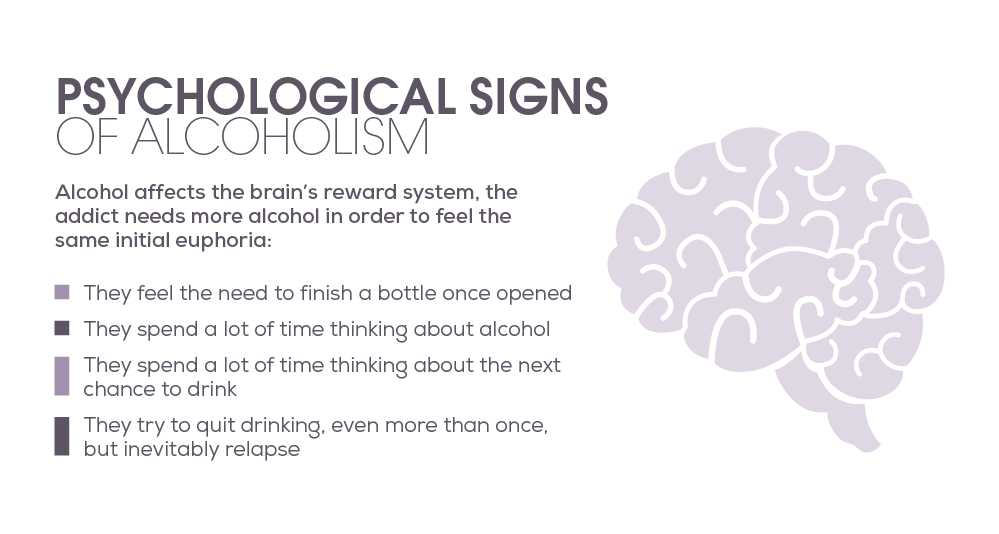
For example, an alcoholic who has lost control over how much or how often they drink may:
These psychological symptoms of alcoholism can have more serious effects, too. Many of the behaviors demonstrated by alcoholics can lead to further psychological issues or issues with mental health. Take, for example, the comedian Robin Williams who committed suicide in 2014:
“As an alcoholic, you will violate your standards quicker than you can lower them.”
Anxiety and depression are two of the most common psychological symptoms of alcoholism, and often they are caused by the behaviors people resort to to hide their alcoholism.
Depression, for instance, could be caused by the loneliness one feels when they realize they are always drinking alone. It could also be caused by the realization that you’ve violated your own standards or those of the people you care about, as explained by Williams. Or perhaps you’re depressed because you’ve lost your job, money, or relationship as a result of your alcoholism.
Anxiety can come from some of the same places. Often, anxiety is caused by worrying when one is unable to drink in a social situation. Other times, someone is anxious because they can’t remember what they could have done to hurt someone when they were drinking. Additionally, you become anxious upon realizing that you don’t seem to have the strength to quit drinking alcohol.
As you can see, there are many ways that alcoholism can affect your psychological health.

There are many alcoholism symptoms that affect the user, but there are also many alcoholism symptoms that affect those around the user. Relationships are often harmed when someone becomes an alcoholic.
“So when I woke up, my wife and daughter were standing there in the kitchen and I’m passed out on the floor.”
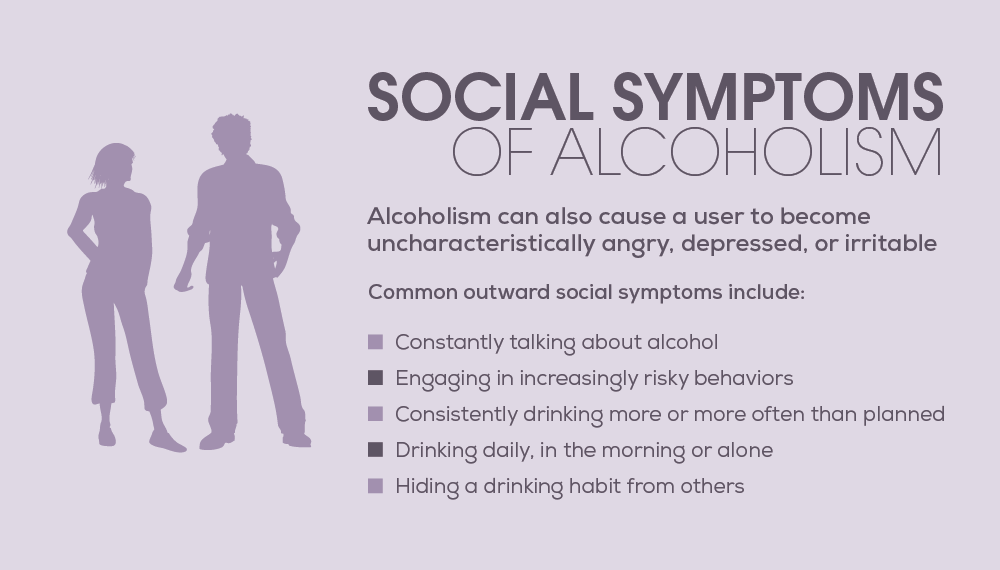
Relationships can be harmed by the lies users tell to cover up their alcoholism. They can also be harmed by the effects the alcohol has on the user, as in the case of Samuel L. Jackson. It was when his 8-year-old daughter found him unconscious on the floor that he agreed to get help for alcoholism.
Alcoholism can also cause a user to become uncharacteristically angry, depressed, or irritable. This can further the rifts caused in relationships by the secrecy and lies that are necessary to hide a problem with alcohol.
Some of the most common outward social symptoms of alcoholism include:
This preoccupation with alcohol and drinking alcohol can manifest itself in many ways. These signs that you or someone else is making alcohol their priority include:
In many cases, alcoholics are still high-achieving and seem to be doing well - as long as they have alcohol. This is called high-functioning alcoholism, and it’s often much harder to spot because the outward symptoms are not present.
This video gives an overview of how to spot a functioning alcoholic.
Keep in mind that just because someone shows no outward signs of alcoholism doesn’t mean it isn’t affecting them. Even those who can maintain relationships and jobs suffer from the physical, physiological, and psychological effects of alcohol.
After a time, even those who have been functioning well as an alcoholic will begin to show other signs of alcoholism. If you or someone you know is an alcoholic but doesn’t show the social symptoms of alcoholism, be aware that you are still being affected by alcohol. Don’t wait to find help, because the other symptoms of alcoholism will catch up to you.
As mentioned above, alcoholism can look very different for different people. It can be hard to tell if someone is an alcoholic, because it may look so different for them than for you.
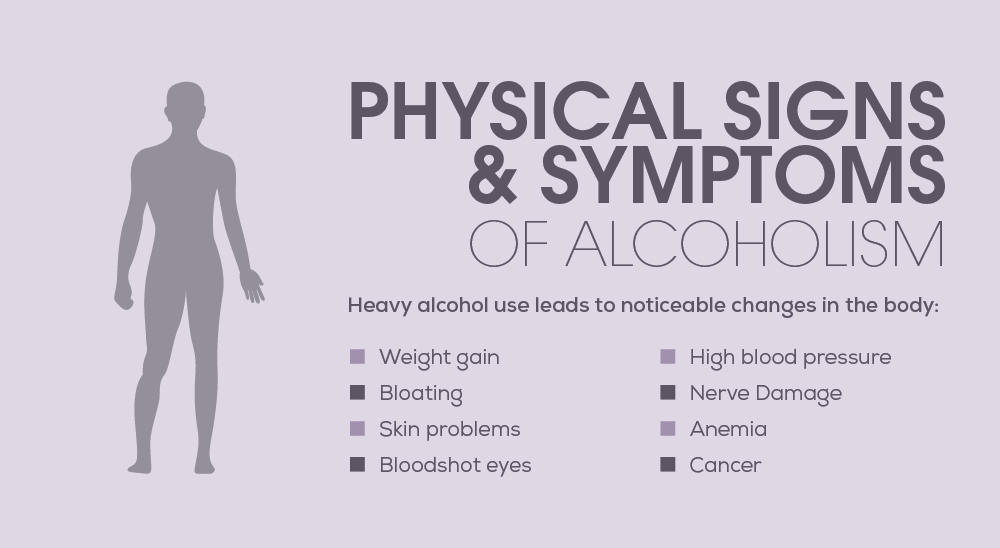
The one thing in common between all of those struggling with alcoholism, though, is that withdrawal will be difficult. Withdrawal symptoms are the body’s way of telling the brain that it needs alcohol to function normally.
The more often and more that an individual drinks, the faster they will experience this common symptom of alcoholism. People who drink more are also more likely to see more intense signs of withdrawal, since the substance has taken a heavier toll on their brain and their body.
The good news is that withdrawal symptoms do not generally last very long. On average, the most extreme symptoms of withdrawal from alcohol end within three days. That said, an individual who has been drinking alcohol for a long time might continue to feel uncomfortable from the symptoms for several weeks.
It is also important to note here that alcohol withdrawal is one of the most easiest alcoholism symptoms to look for. This is because it has very little to do with behavior and everything to do with physical dependence on the substance. Withdrawal from alcohol is the first sign that alcohol addiction is present.
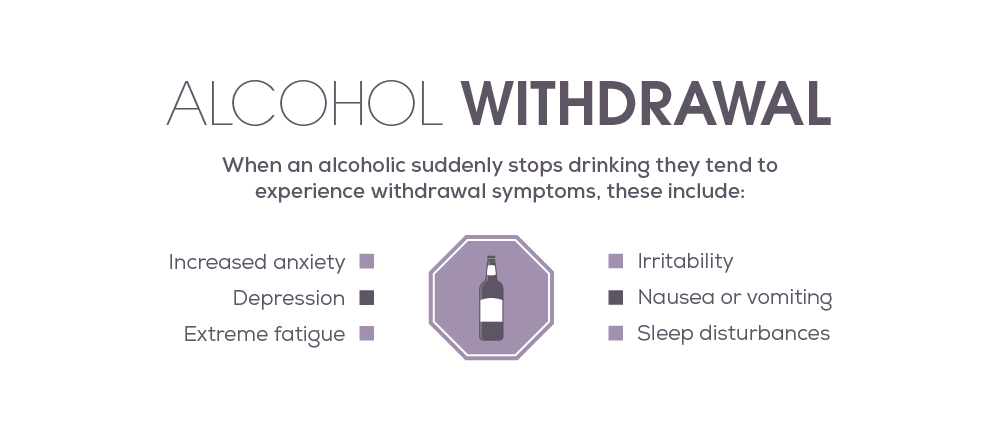
Some of the symptoms of alcoholism include:
As you can see, the symptoms of alcohol withdrawal are not pleasant. That’s part of why it’s so important to withdrawal or detox from alcohol under a doctor’s supervision.
After reading about the symptoms of alcohol withdrawal, you may be wondering why you should go through alcohol withdrawal or alcohol detox at all. You might ask if it really matters if you go through alcohol withdrawal, because you feel you’re only hurting yourself when you use alcohol.
The physical, physiological, psychological, and social symptoms of alcoholism can be deadly. These signs of alcoholism affect not just the user, but everyone around them and everyone who cares about them.
By getting help for alcoholism, you could be helping to unravel years’ worth of damage to yourself, your family, your friends, and your coworkers.
Alcoholism happens to even the most successful and strong-willed people. The following celebrities, and many more, have struggled with alcoholism:
The important thing to remember is that these celebrities sought help for their alcoholism, and you have that same opportunity if you or a loved one is an alcoholic.
“The mentality and behavior of drug addicts and alcoholics is wholly irrational until you understand that they are completely powerless over their addiction and unless they have structured help they have no hope.”
~ Russell Brand
Russell Brand knows about alcoholism and how much it can affect your life. Now, though, he’s been sober for 15 years. He believes that his sobriety would never have been a reality without structured help.
Many people find help for recovery from alcoholism in groups such as Alcoholics Anonymous. Alcoholics Anonymous help to hold former alcoholics accountable for staying sober. To do this, they teach a multi-step program that leads former users through seeing the destruction they have caused with their alcohol abuse and making amends for their past actions.
Others choose to go through rehab programs to get help for alcoholism. This means that their withdrawal can be monitored by trained professionals and they can receive continued support in staying sober.
Some of the benefits of an inpatient rehab program include:
Outpatient rehab programs, on the other hand, provide:
Whether inpatient or outpatient, rehab programs provide the highest success rate for those recovering from alcoholism. Inpatient programs have the highest success rate overall, but what’s best for you may be different.
Whatever you choose, it’s important to remember that it’s best not to go through the process alone. This increases the likelihood of relapse into alcoholism and can put you in some danger during the withdrawal process.

“I finally said, ‘You know what? I don’t think I can continue doing this.’ And I reached out for help, and I ran with it.”
~ Robert Downey Jr.
Getting help to recover from alcoholism can be difficult, but it is possible. You are not alone in your journey to recovery from alcohol abuse, and there are facilities in Washington state that can help you.
Northpoint Seattle is committed to helping people and their families who suffer from addictions like alcoholism. You can read more on our website to determine if Northpoint Seattle is a good fit for you, or see our other resources to determine if you or someone you love is an alcoholic.
If you want to know if you or a loved one is suffering from alcoholism, try our Am I an Alcoholic? Quiz.
You can also find out the legal repercussions if you’ve been charged with Driving Under the Influence (DUI) or Driving While Intoxicated (DWI) in Washington state.
You can also read an account of what to expect during alcohol detox, or a further account of how to get help for military personnel with alcoholism.
If you want to know how successful drug and alcohol rehab program can be, check out the drug treatment program success rates. If you’ve decided that drug rehab is for you, but aren’t sure how you’ll pay for it, read our guide.
If in reading this page you’ve discovered that a loved one may be an alcoholic, read more to find out how to best help them.
Whether for you or a loved one, we can help you choose the right treatment facility in Washington state. We care, and we want to help you or your loved one recover from alcoholism quickly, safely, and affordably.
Our goal at Northpoint Seattle is to help you regain your life.

Our admissions coordinators are here to help you get started with treatment the right way. They'll verify your health insurance, help set up travel arrangements, and make sure your transition into treatment is smooth and hassle-free.
[DirectNumber] Contact Us